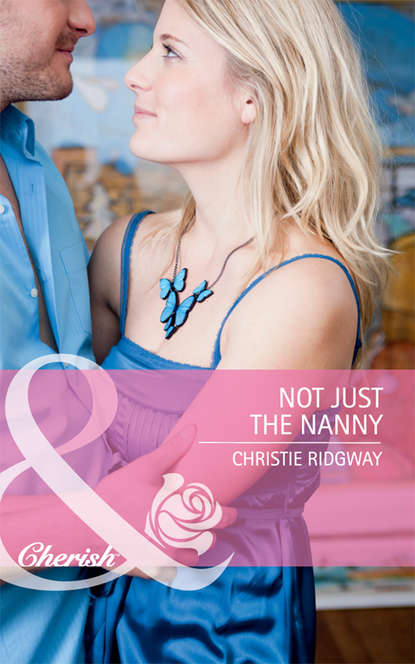
Полная версия
The Bride With No Name
“No, that’s not true,” he contradicted in a calm, soothing voice.
But his words only seemed to fan the fires already threatening to go out of control.
“Look, you’re not inside this head—I am and there’s nothing. Not a damn thing.” She pressed her lips together to keep a wave of hysteria from bursting out.
Trevor went on as if she hadn’t said a word. “You remember how to talk. You speak English without an accent, international or regional, so most likely, you’re a native Californian, most likely from around here.”
“Terrific, that makes me one of what, forty million people?”
“You remembered that,” he pointed out. “Things are coming back to you, just waiting to be plucked out of the air.” Before she could utter another sarcastic contradiction, Trevor instructed, “Close your eyes again and think.”
“About what?” she demanded. “I don’t remember anything—except how many people there are in Southern California,” she qualified angrily before he could mention that extraneous bit of information again.
Trevor took the display of temper in stride. “I think we can safely rule out that you’re an anger-management counselor. Humor me,” he told her. “Close your eyes and see if anything comes to you.” Obviously annoyed, the woman did as she was told. “Anything?” he asked after she said nothing for several seconds.
“Yeah.” She opened her eyes. “I’m hungry. And cold.”
That wasn’t what he was hoping to hear. “Anything else?”
She pressed her lips together. “And I need to go to the bathroom.”
He would have laughed then if he didn’t feel almost as frustrated as she did. “There’s one right there,” he said, pointing to the public bathroom.
The bathroom was located less than fifty feet away from their bench. Directly in front of the square, stucco building were two outdoor showers, there specifically for people to wash the salt water off their bodies before going back into their cars. Occasionally, in the dead of summer nights, the showers were used by homeless people who longed to feel clean again.
As the woman got up, so did Trevor. There was unabashed suspicion in her eyes as she stopped walking and glared at him.
“You’re not going in with me, are you?”
“Wasn’t planning to,” he answered mildly. “Just want to make sure you’re steady on your feet. You already passed out once,” he reminded her. By the way she frowned, he surmised that somewhere within her now blank world was a woman who liked her independence. Possibly more than the average female, he judged.
“And then what?” she asked as she crossed over to the short, squat building. To her horror, there was no outer door.
“Excuse me?”
She turned around, blocking the building’s entrance. “After you walk me to the bathroom, then what?” She appeared uneasy as she asked, “Are you going home?”
That had been the plan, to go home and recharge for tomorrow. But now things had grown complicated. He couldn’t just abandon her, yet who was she to him? And she obviously resented his being around her. So, instead of answering her directly, he answered, “You said you were hungry.”
“Yes,” she admitted warily.
Trevor couldn’t help wondering if she as always this suspicious, or if her present situation had transformed her. “I’ll take you to Kate’s Kitchen and get you something to eat.”
“Kate’s Kitchen,” she repeated. The words meant nothing to her. “Is that like a homeless shelter, or someone’s house?”
“Neither. That’s my restaurant.”
Even within the context of this minor conversation, mentioning his restaurant filled him with pride. It always did. Having it, running it, had been his goal for a very long time.
She made what seemed to her a logical assumption. “You work in a restaurant?”
Trevor corrected her. “I own a restaurant.”
“Oh.” The single-syllable word was pregnant with meaning and respect—and she hadn’t a clue as to why.
Did she own anything? she wondered. It infuriated her that she didn’t know. This was going on too long, she silently raged. It was as if she were standing in front of a huge, white wall that was locking her out of everything. She couldn’t find the door, couldn’t find any way to enter. The worst was that she didn’t even know what was behind the wall, if anything.
Standing before the entrance to the public bathroom, she hesitated for a moment. She hated this vulnerable feeling. Hated giving in to it or even acknowledging its existence.
But a survival instinct told her that it was necessary. She turned to glance over her shoulder at the man who’d rescued her. The man she probably owed her life to. “You’ll be here when I come out?”
He nodded and she thought she saw a hint of a smile on his lips. Probably laughing at her, she thought. But she had no choice. She couldn’t just wander around on the beach at this time of night.
“I’ll be here,” he promised her.
She had no idea why, but she believed him.
Still, she hurried inside the building to one of the three stalls. None of the doors met and the floor was cold, with sand clinging to the stone here and there, rubbing off on her feet. Shivering as she entered the stall farthest from the doorway, she realized that she didn’t have any shoes on.
Had she lost them in the ocean? Or before?
Nothing came to her.
Within less than a minute, she was finished and standing before the sink closest to the door. She looked at her reflection in the badly cracked mirror. She didn’t recognize the woman with the plastered, chin-length red hair.
Oh, God, who was she? Was someone out there searching for her?
She looked down at her left hand. There was no ring, but she did notice a tan line encircling it. Had there been a ring there? Had she been mugged for that ring? Left for dead? Tossed overboard?
What? her mind screamed.
No answers came in response.
Blowing out a breath, she turned on the faucet. A rumbling noise preceded the emergence of lukewarm water. At least it was clear and not rust-colored. Cupping her hands together, she caught some and threw it on her face, wishing desperately that the simple action would be enough to make her remember.
It wasn’t.
“You okay in there?”
She jumped when she heard the man—Trevor, was it?—call out the question. Her heart hammered.
“Just peachy,” she heard herself respond.
Even to her own ears, it didn’t sound right. There was an angry edge in her voice, which shamed her. This guy, this restaurant owner, didn’t have to help her. Didn’t have to risk his life to rescue her from a watery grave. Why was she being so nasty to him?
“Sorry,” she called out. “I don’t mean to be taking this out on you. I just want to remember. I should remember,” she insisted.
Because she’d tendered a half apology, Trevor’s annoyance with her instantly abated. It took very little to get on his good side.
“You’re going through a lot,” he told her soothingly. She came out then, the expression on her flawless face just a shade contrite. It was all he needed. “C’mon,” he urged, “I’ll take you to the restaurant. It’s within walking distance.”
Rather than guide her toward the parking lot, he indicated that they were going to go in the opposite direction.
As he placed his hand to the small of her back, he felt her stiffen beneath his fingertips. Giving no indication that he’d noticed, he dropped his hand to his side.
“The restaurant’s right over here.”
She stopped and looked at the blue-and-gray stucco single-story building. Navy-blue trim outlined the door and windows. The building went on for half a city block. A terrace ran along the length of the back of the restaurant. The tables and chairs that usually occupied it during working hours were tucked just inside a wall of glass for the night.
It looked nice. Inviting, even in the darkness. “This is yours?”
Taking his key out, he unlocked the door and then held it open for her. “Mine and the bank’s.”
She walked in front of him. He hit a switch to the right of the door. Lights came on, illuminating the way.
It was homey, she thought, as she scanned the interior. Warm. She liked it.
“It’s nice,” she commented. Desperate to find something familiar to grasp, she continued her search over to the reception desk. Nothing around her nudged at any distant images. Still, she heard herself asking, “Have I ever been in here before?”
He turned on another series of lights, not wanting her to feel any more disoriented. “Not that I know of, but then, I’m usually in the kitchen.” He only came out on occasion, when someone he knew was in the dining area.
When he said he owned the restaurant, she’d thought of the financial end. She hadn’t thought of him in any other capacity. Cocking her head, she tried to picture him at a stove, surrounded with boiling pots.
“You’re a chef?”
Trevor smiled, thinking of the diploma from the culinary academy that hung on the wall of his tiny office in the back. “So I like to think.”
“Who’s Kate?” she asked suddenly, turning toward him. “Your wife?”
“My stepmother.”
“Oh.” Now that was odd. Most people thought of stepmothers as creatures to get away from, not immortalize. She had no idea where the thought came from, but it took root, planting itself firmly in her mind. Did she have a stepmother? Was that why she felt like that?
“That’s a little strange.” And then she realized that she’d said the words out loud. She didn’t want to offend him, not after he’d rescued her. “Sorry, none of my business.”
He couldn’t help wondering what sort of unsavory scenario she’d just conjured up in her mind. Something from her past? Was she remembering?
“My stepmother came to work for my dad as our nanny a little more than twenty years ago. She basically saved our lives—not the way I saved yours,” he qualified, “but in a sense, just as dramatically.” On the outside, they had seemed like a family, but inside, they’d all kept to themselves, at least as far as the pain was concerned. Losing their mother had been hard on all of them. “She brought a lot of happiness into our world and she’s been supportive of all of us from the first day, even when we gave her a hard time.”
Trevor continued turning on lights as he went toward the rear of the restaurant, to where the walk-in refrigerator was located.
She followed him, but she’d stopped listening right after Trevor had said the part about saving her life. It came home to her in letters ten feet high.
He had saved her life.
If not for this man, she would have quite possibly died in that ocean.
By design?
By accident?
Damn it, why wasn’t anything coming back to her? she silently demanded. Why didn’t she even know her own name? At least the first name, if not the last.
Lost in thought, she impotently clenched her hands into fists again and sighed, struggling to keep her frustration in check.
He heard the loud sigh. Trevor doubted the woman was even aware of it. Opening the door to the refrigerator, he took a step in, then looked around at several racks containing covered pans.
“Can you remember liking anything in particular?” he asked her. When there was no answer, he turned to glance at her over his shoulder. There was a puzzled expression on her face. “Food,” he specified. “Can you remember a favorite food?” She seemed to be trying to remember, but then shook her head. “Okay then,” he said philosophically. “Maybe this’ll be your new favorite food.”
He took out a tray, placed a serving on a subdued Wedgwood blue plate and stuck it into the microwave. A minute and a half later, he took out a warm plate of chicken tetrazzini. It had been on this evening’s menu. While it was always a popular item, he’d had a few servings left when he closed his doors.
Tomorrow, everything that hadn’t been consumed today would find its way to St. Anne’s Homeless Shelter. Luther, a man who had worked and lived at the shelter these last twelve years, came by every morning at eight to pick up the leftovers. Trevor made sure that there always were some, even if he had to prepare them that morning. Luther never left empty-handed.
But this serving was for his mermaid, he thought, bringing it over to the table where, during business hours, the salads were prepared.
She stood on ceremony for exactly half a minute, then ate with gusto.
He liked seeing people enjoy his food like this, although, to be fair, the woman would have probably enjoyed anything at this point. She seemed to be as ravenous as she’d claimed.
The entire serving was gone within less than ten minutes. He supposed that nearly drowning spiked a person’s appetite.
“More?” he asked when she pushed the empty plate away from her.
Smiling for the first time since he’d saved her, the woman shook her head. She had a nice smile, Trevor thought.
“No, I’m full.” She resisted the urge to run her fingers over the plate and lick them. “And it was very good. You made this?”
It was one of the first things he’d ever learned to prepare. He’d been seven and Kate had made him her assistant, tying one of her aprons around his waist. It had dragged on the floor, but he’d had the time of his life. He’d gotten hooked on cooking from the very start.
“It’s an old stand-by,” he answered.
“Well, it’s very good,” she repeated, her tone sounding a little awkward. “Thank you.”
He saw concern slip over her face. “What?”
She tried not to let the anxiety take her prisoner. “That’s it exactly. ‘What?’ What do I do now?”
“Well, if you want my opinion,” he said, “I think you should be checked out at a hospital. Just in case.”
She frowned. At the mention of the word hospital, she felt something tighten inside. Was she afraid of hospitals? Had she had a bad experience? Had someone she cared about died in a hospital? It was so terribly annoying, not having a single answer, a single clue to anything about herself.
“I’m okay,” she answered.
“You have amnesia,” Trevor pointed out to her. “That’s not okay.”
She followed him out into the dining hall again. “But they can’t fix that in a hospital, can they?”
“I don’t know, but this way, you find out if you have a concussion, or anything else wrong.” Although from where he sat, she looked damn near perfect, at least on the outside, he mused.
He kept the thought to himself.
“They’re going to want to know my name,” she said.
“We’ll just tell them that you can’t remember it.”
We. Did that mean he was coming with her? She had no idea why, but the thought brought her a sense of relief.
“But I need a name,” she protested. She raised her eyes to his, silently asking him to christen her, if only for the time being.
“Okay.” Fishing out his keys, he thought for a moment. “How about ‘Venus’?”
“Venus?” she echoed. It was pretty. She liked it.
He nodded as he locked the door behind them and then armed the security system. “Like the Botticelli painting. Venus rising out of the sea—”
“On a giant half shell,” she completed.
Her eyes widened.
Chapter Three
“I remember that,” she cried excitedly.
Without thinking, she grabbed at his shirtfront. The jacket he’d put around her began to slip off, but he caught it in time and set it back on her shoulders. She was vaguely aware of an electrical charge dancing through her, but her excitement was focused on this tiny kernel of information that she’d stumbled across.
She searched his face for an answer. “How do I remember that?”
Very gently, he disengaged her hands from his shirt. “You’re an artist, you work in the art field, or maybe you just like Botticelli. Or clams,” he added, picking up on her description of the half shell. “Or maybe your memory’s coming back. Can you remember anything else?” he prodded.
Like a child trying to recall a phrase she’d memorized, the woman slid her tongue along her lips, a faraway look in her eyes. Trevor watched her and could almost see her effort to summon a familiar thought, any familiar thought.
Her frustration was apparent when she shook her head.
“No.” She exhaled the words. “Nothing else.”
Pocketing his keys, he began walking. She fell into step. “Maybe you shouldn’t try so hard, then,” he suggested. “It’ll come back on its own. Like the Botticelli painting.”
She dragged her hand through her hair. Disappointment was evident in every word. “Not fast enough for me.”
He resisted the temptation to put his arm around her shoulders, sensing that the gesture wouldn’t be welcomed. “C’mon, Venus, let’s get you checked out.”
Stumbling blocks became evident. “I don’t have any money,” she told him even as she followed him to the far side of the restaurant’s perimeter, where the parking lot was located.
One lone car stood unattended. His, she surmised. He drove a Mustang. While she recognized the vehicle’s make and model, it meant nothing to her. No bells rang, no fragments of memory were dislodged. It was annoying beyond words.
She stopped before the car, waiting for him to unlock it. “And since I don’t know who I am, I don’t have any medical insurance.” She saw him look up at her. He seemed a great deal happier than she did. “Why are you grinning like that?”
Aiming his key at the car, he pressed a button and disarmed the vehicle’s security system. All four locks sprang to attention. “You just remembered that you need medical insurance.”
She paused for a second before getting into the Mustang. She felt a great deal less pleased about this supposed breakthrough. “You’re right, I did. But if I can remember something that trivial, why can’t I remember who the hell I am?”
Opening his car door, Trevor got in. She followed suit on her side. “Maybe you don’t want to.”
She frowned. “That’s ridiculous. Why wouldn’t I want to remember who I am?”
Psychology wasn’t his thing—that belonged to Kate and his brother Trent. But he’d heard enough about the topic at home to venture an educated guess. “Maybe you’re running from something. Something that involves who you are.”
Her frown deepened. “That’s a little far-fetched, isn’t it?”
Inserting the key into the ignition, Trevor shrugged. “Just a thought.” He glanced at her. “You remembered to buckle up.”
Her irritation increased. Did he think she was a child in need of endless encouragement? “All right, I get it. I remember some things. Some general things,” she emphasized. It was in the same category as remembering how to walk and talk. “You don’t have to keep pointing those things out.”
He started up the car. “Just trying to give you some hope, Venus.”
Guilt assaulted her. She was being waspish again—and he was being nice and definitely going out of his way for her. He didn’t have to be doing any of this. “Are you sure I don’t know you?”
Leaving the lot, he made a left turn, easing onto Pacific Coast Highway. The hospital, Blair Memorial, wasn’t far. “I’m sure.”
It didn’t make any sense to her. Something told her that she was accustomed to people who didn’t go out of their way for anyone. The thought made her sad. “If you don’t know me, then why are you going out of your way like this?”
“Can’t very well save your life then just say, ‘See ya,’ and go on my way, now can I?”
Why couldn’t he? she wondered. “Wouldn’t most people?”
“I don’t know people like that.” Coming to a red light, he eased onto the brake and spared her a look. “But you obviously do.”
She became defensive without knowing why. “How do you know that?”
“Because you wouldn’t have asked that question if you didn’t,” he told her simply. “It wouldn’t have been in your ‘general’ frame of reference.” He emphasized the word she’d balked at previously.
She thought about it for a minute. Without knowing it, he’d hit upon the same thought she’d had, except that hers involved an uneasy feeling. “That’s pretty good. You always this logical?”
Being creative, he’d never thought about being logical. But he did now. He realized logic pretty much dictated a good portion of his life. Unlike Travis, he didn’t act first then think later. He did it the other way around—except when it had come to rescuing Venus. He’d reacted rather than reasoned. But, looking back, he supposed logic came into play even there. Because if he’d stood by and done nothing, her life—and death—would have weighed heavily on his conscience.
But he didn’t want to get into a discussion about himself. It was her they needed to identify, not him.
“Mostly,” he admitted.
She nodded her head. She appeared complacent, but then she challenged him. This was a woman to keep you on your toes, he noted.
“Then tell me how you can logically take me to a hospital to be checked out when I have no money and no identity?” she asked. “They’re going to want to get paid.”
“Don’t worry about that.” He could feel her eyes on him. The woman obviously wanted details. He deliberately remained vague, not wanting to get into an argument. She was already displaying more than the average share of pride. “I’ll take care of it.”
Which meant he was going to pay for her care out of his own pocket—unless he owned a hospital as well as a restaurant.
“If I’m a stranger to you, why would you do that?” she asked.
Because he’d been raised to lend a helping hand when he could. But he had feeling if he told her that, it would sound too much like charity. “In some cultures, if you save a life, it’s yours. That means you have to take care of it.”
Venus shook her head. “This isn’t one of those cultures.”
“Something else you know,” he said cheerfully. He had no idea why he was enjoying himself so much, but he was. “You can pay me back when your memory returns,” he told her. He slanted a look in her direction, then turned back to the road. “That satisfy you?”
“I guess it’ll have to.”
She thought for a moment, then examined at his profile, wondering if she’d just had some kind of a breakthrough. The rest of her mind still felt tangled. But right now, a few fragments floated through her brain. Fragments that seemed familiar, even though she couldn’t harness them. It was all too vague. And so damn aggravating.
She sighed, giving voice to her discovery. “I don’t think I like being beholden to anyone.”
“Nothing wrong in asking for help once in a while.”
“There is if asking for help places you in someone’s debt.”
There was a long stretch between lights. He took advantage of it by stepping on the gas, careful to remain on the alert for the occasional motorcycle cop. “That sounds as if you’ve had some not overly satisfactory relationships with people.”
He was right. It did sound that way. Was this another piece of the puzzle that contained her identity? Venus tried vainly to fit it in somewhere. She struck out.
“I don’t know,” she admitted. But even as she said the words, something nebulous slipped over her. It was elusive and refused to take on any definite form, but came with a feeling that there was some truth in what he said.
He hadn’t expected her to suddenly exclaim, “Eureka!” and have her memory rush back. But he had no doubt that eventually, the woman would remember things. Just not yet.
“Maybe you were just born skeptical,” he theorized.
“Maybe,” she mumbled under her breath. She might not have been born that way, but she felt it now.
Pacific Coast Highway and Newport Boulevard were fairly empty at this time of night. Trevor made the trip from Kate’s Kitchen to Blair Memorial in record time.
Luck continued to hold for them because, judging by the hospital’s emergency room parking lot, it had been a rather slow night at Blair, as well. Two minutes after they entered through the electronic doors, Venus was sitting down in a chair before the receptionist. Rather than take the chair next to her, he stood behind her.












